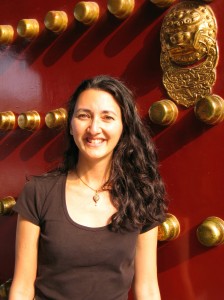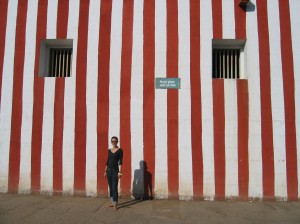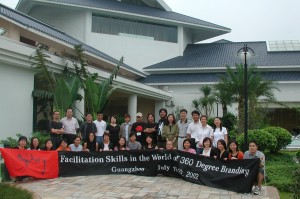Beth Ronsick
Life and Executive Coach
Degree(s): BJ '89

What influenced your decision to study journalism?
I saw journalism and advertising as a way I could combine a lot of things I liked. It was a way to look at culture and society, a way to use writing skills. There is a lot of psychology to it as well, and so I decided, “Let’s do that.”
What is one of your favorite memories of Mizzou?
I loved how on a great sunny day you would see a 100 people sitting on the quad and on the columns, kicking back, reading a book, and hanging out and talking.
What was your favorite part about being a copywriter?
The rush you get when you were working with an art director, and you come up with a creative idea. At that point, things just start to flow and the door opens, and it comes so naturally. It is no longer work. Another part is when you sell something to a client and can start executing it and crafting it and really making it great. You are literally giving birth to something, crafting it and making it the best it can be.

What was the most challenging aspect of copywriting?
Everything I worked on had its own challenge. There is no perfect brand; there is no bad brand. It starts with what is the business problem that we have to solve. It can be challenging and very fun to work on brands that are struggling a bit because you can make a difference. Of course, when you are a creative person, you also need to get enough juicy high-profile things in your diet so that you get a nice balance.
Why did you decide to leave copywriting?
I had been a copywriter for seven years. I loved it, but was also feeling listless. It is intense when you work in a big agency like Ogilvy. You might have 5-10 teams competing on the same assignment. It is not always easy to keep the resilience high. I was getting curious about other aspects of the business. I thought, “Life is short. Let’s see what else goes on.”
What was your next career step?
I felt really strongly about helping creative people have a little bit of structure. People think the creative world is all loosey-goosey, but actually you need a path, feedback and information on how you can move ahead. There was nothing to help people find their way. I wanted to get people some support within the creative department at Ogilvy. I got the training going and found a way to get people more structure for getting inspiration.
What were your job responsibilities when you transferred to the Ogilvy office in Asia?
I conducted training and career development. I was based in Hong Kong, but my position was a regional role. Hong Kong was the strategic center, but Ogilvy had 20 offices around Asia. I would go around Asia and teach various topics, like how to use our brand consulting process, how to facilitate big ideas, how to manage your career. It was also my job to partner with local office management to create a sustainable network for growing and keeping our best talent.

How was the task of training employees different in Asia compared to the U.S.?
It is a very different mentality toward training in Asia. I find that in the West, we go to a university for four years and it’s like grads think they know everything there is to know; “so just give me a six-figure job.” In Asia there is more of a sense of lifelong learning. It is more of a Confucian mentality where there is a lot of respect for the learning process. Training already had a stronger legacy, and it was a real honor to step into that network where people just wanted to sponge up everything you could possibly get out there.
If you were shipwrecked on an island, what books would you want with you?
The Poisonwood Bible, the poetry of Rumi and an empty journal.
What are your favorite movies?
The Hairdresser’s Husband, Like Water for Chocolate, The Breakfast Club, American Beauty and The Hours.
What is an important lesson you have learned in life?
Stay open. Just when you think you’ve got it all figured out, that is the sign that you have so much more to learn. Stay open to other possibilities and ideas. That is what makes creativity, and that is what keeps companies and careers innovative.
What does the Missouri School of Journalism mean to you?
Reflecting back on personal experience, it is a place that symbolized the collegiate crossroads of coming into my own — of dreaming big dreams, of ambition, of feeling ready to take on the world and of having an ally, via my education, to help me get there. As an observer who has stayed in touch and now taught twice for J-School since graduation, the key theme that continues to surface is a bent for good writing, regardless of sequence. The advantage of emphasizing writing is that in order to be a good writer, one must first be a good thinker. Clarity of mind and the ability to express one’s thoughts with passion and relevance are two of the touchstones of any successful career. This is what I’ve come to expect of a J-School grad.
Updated: November 10, 2011